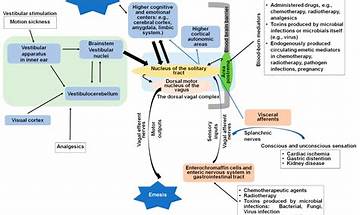Congratulations! Team Cao Xuetao made further progress.

The efficacy of anti-programmed cell death protein 1 (PD-1) immunotherapy in various cancers, including gastric cancer, needs to enhance the therapeutic effect through more effective targeting or identify accurate biomarkers to predict clinical response.
On August 4, 2023, China Academy of Medical Sciences/Peking Union Medical College Cao Xuetao, Wang Chunmei and Xu Ruihua of Sun Yat-sen University jointly published an online publication entitled "MFSD2A potential TESGASTIC Cancer Response to Anti-PD-1 immunotherapy by reprogramming the tumor mic" in Cancer Communications(IF=16). Ro environment to activate t cell response ",which shows that FSD2A can enhance the response of gastric cancer against PD-1 immunotherapy by reprogramming tumor microenvironment to activate T cell response. The high expression of MFSD2A in tumor tissue of AGC patients is related to the better response of anti-PD-1 immunotherapy. The expression of MFSD2A in gastric cancer tissue is lower than that in normal tissues adjacent to cancer, and it is negatively correlated with the staging of gastric cancer.
Overexpression of MFSD2A in GC cells enhances the effect of anti-PD-1 immunotherapy in vivo by reprogramming tumor microenvironment (TME), which is characterized by increased CD8+T cell activation and reduced its depletion. MFSD2A inhibits the release of transforming growth factor β1 (TGFβ1) from gastric cancer cells by inhibiting the synthesis of cyclooxygenase 2 (COX2)- prostaglandin, thus reprogramming TME and promoting the activation of anti-tumor T cells. Therefore, MFSD2A may be a predictive biomarker of anti-PD-1 immunotherapy response in AGC patients, and it is also a promising therapeutic target. By reprogramming TME to promote T cell activation, the efficacy of anti-PD-1 immunotherapy can be enhanced.
In addition, on May 20, 2023, Naval Medical University/China Academy of Medical Sciences/Peking Union Medical College/ Cao Xuetao team of Nankai University published an online Journal of Autoimmunity(IF=15) entitled "Metallic enzyme suclg2 Maintenance Tolerogenicity of Regulatory Dendritic Cells DiffDCS by Suppressing LA". Ctb succinylation ",which shows that the metabolic enzyme Suclg2 can maintain the tolerance of dendritic cells to diffDCs by inhibiting the succinylation of Lactb. This study shows that Suclg2 is a necessary metabolic enzyme to maintain the immune regulation function of diffDCs, which provides a new understanding of the mechanism of DCs immunity and tolerance to metabolic regulation (click to read).
On April 18th, 2023, Naval Medical University/Institute of Basic Medicine, China Academy of Medical Sciences/Cao Xuetao of Nankai University and Liu Juan of Naval Medical University published a review paper entitled "Glucosis of Tams in Tumors Resistance and Metastasia" online in Trends in Cell Biology(IF=21). This review summarizes the effects of glucose metabolism on TAM: (1) The increase of glucose metabolism in TAM leads to the accumulation of many tumor metabolites, which show strong tumor-promoting ability by regulating gene expression and signal transduction; (2) Glucose intake also promotes o- glcn acylation and other post-translational modifications, and promotes the tumor polarization and function of TAM; (3) Glucose metabolism coordinates the interaction between TAMs and various types of cells in TME, forming a complex network to promote tumor progression; (4) Targeted glucose metabolism is a promising cancer treatment strategy to transform TAM from tumor-promoting function to anti-tumor function (click to read).
On February 15th, 2023, Cao Xuetao and Jiang Minghong of Peking Union Medical College, China Academy of Medical Sciences published a joint communication in Cell Reports online entitled "RNF 138 inhibitions late infection gene transmission through degradation of SMAR CC 1 of the SWI/ SNF complex ",which provides insights into the interaction between nucleosome remodeling, inflammation and ubiquitination, and emphasizes the important role of E3 ubiquitin ligase in controlling the degree and duration of inflammatory reaction (click to read).
January 18, 2023, Naval Medical University/Peking Union Medical College, China Academy of Medical Sciences/ Cao Xuetao of Nankai University and Liu Juan of Naval Military Medical University published a joint communication in Cell Reports entitled "Glycosyl transferase extl1 promoters CCR7-Mediated Dendritic Cell Migration to Restraint Infection and Autoimmune Unit" online. Y ",which shows that the glycosyltransferase Extl1 promotes CCR7-mediated dendritic cell migration to inhibit infection and autoimmunity. This study provides a mechanism for the regulation of CCR7-triggered DC migration in immunity and tolerance, and provides a potential target for the treatment of infectious and autoimmune diseases (click to read).
On January 5th, 2023, Cao Xuetao and Liu Juan of Naval Medical University published an online review article entitled "RBP-RNA interactions in the control of autoimmunity and autoinfection" in Cell Research magazine. This review summarized and discussed the function of RBP-RNA interaction in controlling abnormal autoimmune inflammation and its potential as a biomarker and therapeutic target (click to read).
Immunotherapy, including immune checkpoint blockade, ICB), adoptive cell transfer therapy, therapeutic cancer vaccine and antibody, has become the frontier of cancer treatment in recent decades, with strong effectiveness. Among immune checkpoint inhibitors, programmed cell death protein-1 (PD-1) antibody has shown good efficacy in the treatment of various hematological diseases and solid cancers. Despite its clinical success, PD-1 blocking reaction is usually only observed in a certain proportion of patients, so it is very important to determine accurate biomarkers to predict treatment response and patient selection.
More and more evidences show that patients' response to PD-1 immunotherapy is positively correlated with high tumor mutation burden (TMB), DNA mismatch repair defect (MMR), high expression of programmed death ligand 1 (PD-L1) and mutation of DNA polymerase epsilon and delta 1 in tumor cells. However, not all tumor patients with these biomarkers respond well to PD-1 immunotherapy. For example, only 40%-70% of patients with MMR-deficient tumors respond to the PD-1 inhibitor pamuzumab. In addition, only 44.8% of patients with non-small cell lung cancer with high expression of PD-L1 in the tumor responded to Pamuzumab. Therefore, it is urgent to determine more accurate biomarkers to predict the clinical response of anti-PD-1 immunotherapy.
Gastric cancer, GC) is the fifth most common cancer in the world. Despite the recent progress in this field, the treatment options for advanced gastric cancer (AGC) cases are still limited. Anti-PD-1 immunotherapy has been used to treat AGC patients; However, most AGC patients have a poor response to PD-1 antibody, and the objective remission rates (ORR) of pamuzumab and navuzumab are only 11.6% and 11.2%, respectively. The overall clinical benefit is not ideal, which makes it necessary to study the mechanism of anti-PD-1 monotherapy for drug resistance.
The manipulation of effector T cells by cancer cells in tumor microenvironment (TME) is the main mechanism of resistance to PD-1 immunotherapy. In TME, immunosuppressive cells, including regulatory T cells (Tregs), tumor-infiltrating myeloid inhibitory cells (MDSCs) and tumor-associated macrophages (TAM), as well as some inhibitory cytokines produced by cancer cells, such as transforming growth factor β (TGFβ) and interleukin-10 (IL-10), inhibit the activation and infiltration of tumor-infiltrating lymphocytes (TILs), and cannot be prevented. In addition, the imbalance of cancer cell metabolism, which is known to promote tumor progression and inhibit immune cells in TME, is considered as a key obstacle to anti-tumor immunotherapy. Although targeted metabolic pathways, such as glycolysis, amino acid and lipid metabolism, may overcome the limitations of immunotherapy by reprogramming TME, it is not clear whether metabolism regulates the efficacy of anti-PD-1 immunotherapy in GC. Therefore, it is helpful to improve the treatment response of AGC patients to understand how tumor metabolism affects anti-PD-1 immunotherapy in TME.
Working model of MFSD2A enhancing the therapeutic effect of GC on PD-1 (Figure from Cancer Communications)
Protein 2A(MFSD2A), which contains the major co-transporter superfamily domain, is a lipid metabolism-related protein and plays a key role in maintaining the blood-brain barrier. MFSD2A deficiency has been proved to increase blood-brain barrier leakage and developmental brain disorders. MFSD2A is considered as a tumor suppressor. It has been reported that it inhibits the attachment of extracellular matrix, regulates the cell cycle of lung cancer cells, and prevents the metastasis of brain cancer cells by restoring docosahexaenoic acid transport in cells. In addition, MFSD2A has been proved to be very important for maintaining memory T cells and reducing the secondary reaction of repeated infection. However, the role of MFSD2A in anti-tumor immunity is still unclear.
This study reported that MFSD2A inhibited the production of TGF-β1 in GC cells by inhibiting the synthesis of COX2- prostaglandin, promoted the activation of CD8+T cells in TME, and enhanced the efficacy of anti-PD-1 immunotherapy in GC patients. The research data revealed a new predictive marker of anti-PD-1 immunotherapy and described a new mechanism of anti-PD-1 immunotherapy sensitization. However, the potential mechanism of MFSD2A regulating prostaglandin metabolism pathway needs further study. This study shows that FSD2A can enhance the response of gastric cancer to PD-1 immunotherapy by reprogramming tumor microenvironment to activate T cell response. The high expression of MFSD2A in tumor tissue of AGC patients is related to the better response of anti-PD-1 immunotherapy. The expression of MFSD2A in gastric cancer tissue is lower than that in normal tissues adjacent to cancer, and it is negatively correlated with the staging of gastric cancer.
Overexpression of MFSD2A in GC cells enhances the effect of anti-PD-1 immunotherapy in vivo by reprogramming tumor microenvironment (TME), which is characterized by increased CD8+T cell activation and reduced its depletion. MFSD2A inhibits the release of transforming growth factor β1 (TGFβ1) from gastric cancer cells by inhibiting the synthesis of cyclooxygenase 2 (COX2)- prostaglandin, thus reprogramming TME and promoting the activation of anti-tumor T cells. Therefore, MFSD2A may be a predictive biomarker of anti-PD-1 immunotherapy response in AGC patients, and it is also a promising therapeutic target. By reprogramming TME to promote T cell activation, the efficacy of anti-PD-1 immunotherapy can be enhanced.
https://onlinelibrary.wiley.com/doi/10.1002/cac2.12476
Declaration: All article resources on this website, unless otherwise specified or labeled, are collected from online resources. If the content on this website infringes on the legitimate rights and interests of the original author, you can contact this website to delete it.






